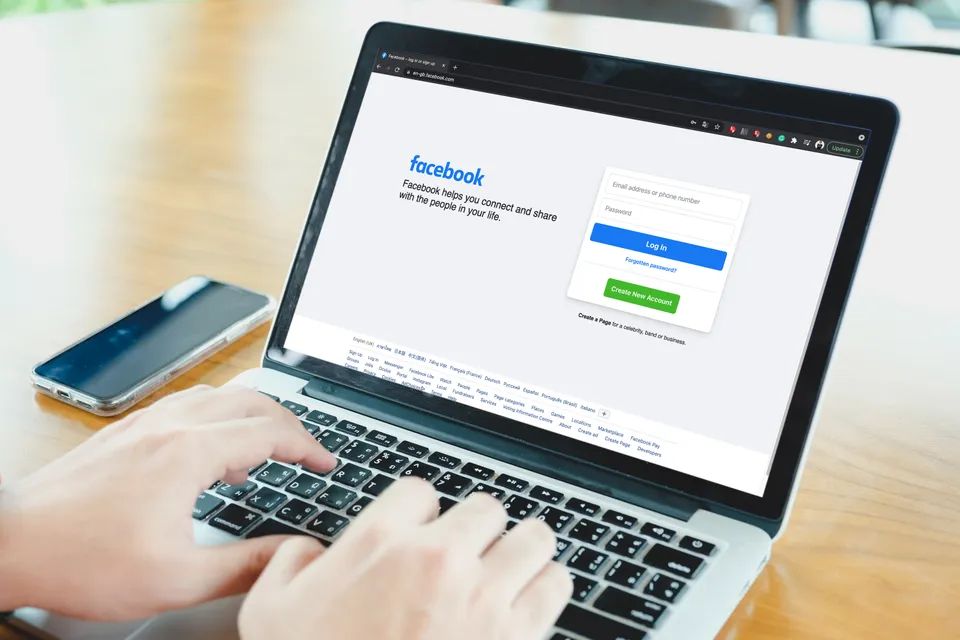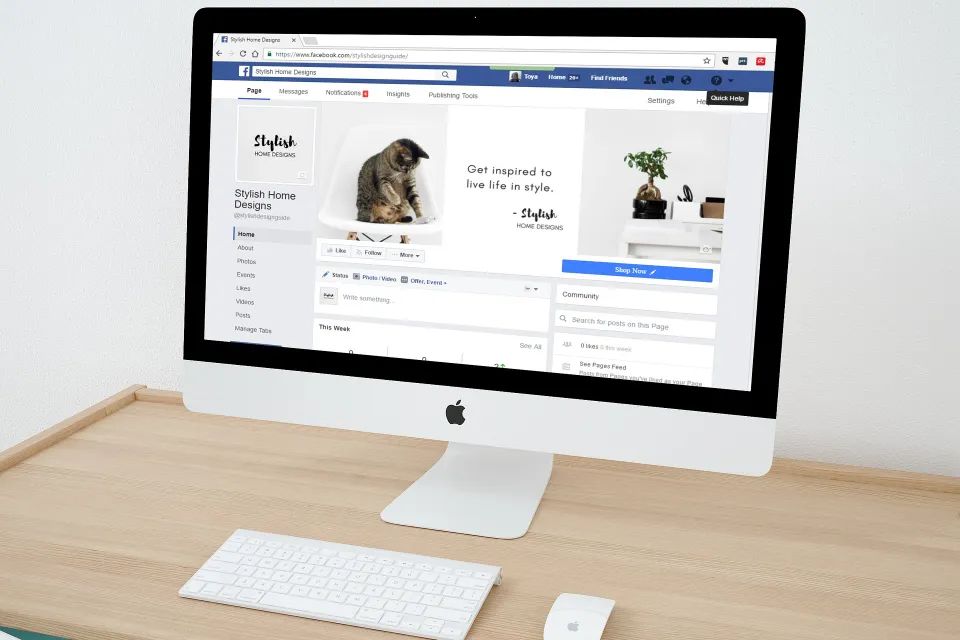
Why a Business Facebook Page Doesn't Replace the Need for a Website
With so many people using the platform regularly, it is no surprise why millions of companies use it to connect with their customers. Facebook's business pages are free and can be a great addition to your company. However, should they be used in place of a professional business website?
The short answer is no.
No matter your product or service, a website is essential for any business. So, if you are curious to learn why a Facebook business page can’t replace a business website, you've come to the right place. Keep reading for a complete Facebook vs website guide.
3 Reasons Why Every Business Needs a Website
An online presence is crucial to reinforce your brand and connect with new and old customers. Although social media plays a significant role in this, a website is important for many reasons including to establish your business' authority online, build credibility and stand out against the competition. Keep reading to learn more ways that a website is beneficial to a business.
1. You Have Complete Creative Control with a Website
Websites are a fantastic way for businesses to tell their stories and persuade leads to take action. When you design a website, you have complete control of its elements, design, and content. This means that your page can be just as unique as the business itself.
Your website is often the very first impression potential clients will have of your business, so having creative control is crucial. Suppose you only use social media as your business' identification and point of contact. In that case, you'll essentially be filling out a template that will restrict you from providing details about your business and make your profile page look exactly like the competition.
With your own website, you can make your business stand out from the rest by incorporating branding and every other aspect of your business' identity. Although having social media profiles for your business are beneficial and should be used in your marketing strategy, a website can house so much more information about your business and bring your brand to the next level.
Unlike a Facebook business page, with a website you can create different pages on your site making it easy for visitors to navigate and find the information they are looking for. For example, you may want to display samples for your work, showcase great customer reviews, and have a contact us form on separate pages and navigation tabs for each.
However, keep in mind that a poorly designed site can do more harm than good, so make sure to keep everything user-friendly, on-brand, and professional.
2. A Website Builds Credibility and Demonstrates Professionalism
Having a well-designed website will make your business look a lot more professional and build trust with your customers. Nowadays, the internet is full of scams, so most customers do a lot of research before they choose to trust a business. If people can only find you through social media, you won't look as credible as a competitor with a website.
Furthermore, a website is the perfect place to list awards, post testimonials, share photos and videos, and give more reasons for people to believe that you are an established company that deserves their business. Think of a website as an extension (or replacement) of a brick-and-mortar store.
What would you have on the walls to make customers understand your brand and make them feel comfortable doing business with you? Adding professional and personal touches to your website will make your business stand out and brand relatable with customers.
3. A Website Provides Customers with Quick Access to Information
A website is the best place to put everything a potential customer should know about your business. This includes location, hours of operation, contact information, products and services offered, social media icons, and anything else that you could think of that your customers might need to know. Ultimately, a website looks more official and will always appear as the better alternative for customers to look up information about your business.
In addition, there are many things you can incorporate into your website to make it look even better and make it easier for customers to access information. For example, you can set up a Google Map for your location and even embed YouTube videos to show customers how your products or services work.
With social media, you are limited with the information you can display. In addition, whatever you post on social media is listed at the top temporarily until it is pushed down every time a new post is made. So, if you need to share important information and have it somewhere that will always be readily available to your clients, a website is the best solution.
3 Reasons Why You Shouldn't Replace a Website With a Facebook Page
Now that you've read about the benefits of having a website for your business, you might be thinking, "why should I invest time and money in a website if Facebook allows me to create a page within the platform?" Sure, creating a Facebook page for your business might seem like the easiest route, but although this platform can be handy, it has plenty of limitations and reasons why you shouldn't use it as a replacement for a website.
1. A Facebook Page is Just a Tool
Facebook pages are free, easy to create, and very user-friendly. However, they also don't let you have a lot of creative freedom. When you create a Facebook page, it'll look exactly like every other business page on the platform (besides, of course, having your information and profile picture). Solely using Facebook will not set you apart from your competition.
However, Facebook is a great marketing tool that you should be using. The platform lets you post updates, pictures, and information to connect with your target audience. The downside is that every time you post, all of the preceding information gets pushed down and eventually lost into the over-saturated platform.
So, instead of looking at Facebook as a replacement for your website, look at it as a tool that will help you bring in more traffic to your website and help you grow your business.
2. Facebook Owns Its Pages (Including Yours)
Another downside of replacing your website with a Facebook page is that you will not be its owner- Facebook will. Although Facebook pages are "free," you'll be paying the high price of not owning nor controlling what happens on this platform. This means that if Facebook changes its algorithm, rules, etc., your business page will change with it, and you'll have no control over it.
Furthermore, let’s say someone mistakenly flags your business page or reports your page to Facebook. Facebook takes these types of notifications seriously and within just a few hours your page could be down and unsearchable.
When you create your website for your business, you'll be able to call the shots and won't depend on a big corporation to micromanage the way you want consumers to perceive and receive information about your business.
3. Facebook Pages Have Limited SEO Benefits
SEO is crucial for your business to be discovered organically. With Facebook, because all of the pages are essentially the same, there is very little you can do in terms of optimization. Sure, Facebook has billions of users, but millions of business pages fight for their attention.
Facebook also doesn't grant you access to ALL of their users, in fact, Facebook's organic reach is minimal, so your content won't even be seen by your entire list of followers either. For this reason, if you rely on Facebook to work as your platform, you'll probably need to pay for Facebook Ads to expand your reach and make it easier for all those users to find you.
On the other hand, when you create a website, you can use keywords, add search worthy content, and blog articles to make it easier for potential customers to find you using search engines like Google. Using SEO strategically will help you expand your website's organic traffic. Then, if you deem it necessary, you can use social media platform tools to pay for ads and bring even more traffic to your website.
Should You Use Social Media for Your Business?
Social media marketing is not something that businesses should overlook, as it is a fantastic strategy proven to work. Nowadays, companies should be using social media platforms such as Facebook to build brand awareness, connect with customers, generate leads, and increase website traffic. However, as you can see, solely relying on social media and not having a website could turn out to be a big mistake.
The best way to use social media to your advantage is to use it as a brand marketing tool. This way, you'll be able to leverage all of its benefits without missing out on the opportunities that go along with having a business website.
Social media will help reinforce your online presence, but it should not replace your website. Instead, use it to build connections with your customers, build your brand, and generate attention for your business.
Facebook VS Website
When it comes to Facebook vs website pages, which one is better for your business? Both!
If you were wondering whether you should replace your website with Facebook, hopefully, this guide showed you that you should not. Using Facebook can be a useful marketing tool; however, it would be a mistake to use a Facebook business profile as a replacement for a well-designed website.
Designing a website will give you creative control, which will allow you to establish yourself as a trustworthy business. In addition, it will enable you to get organic traffic using SEO, and you won't have to worry about algorithm or policy changes.



